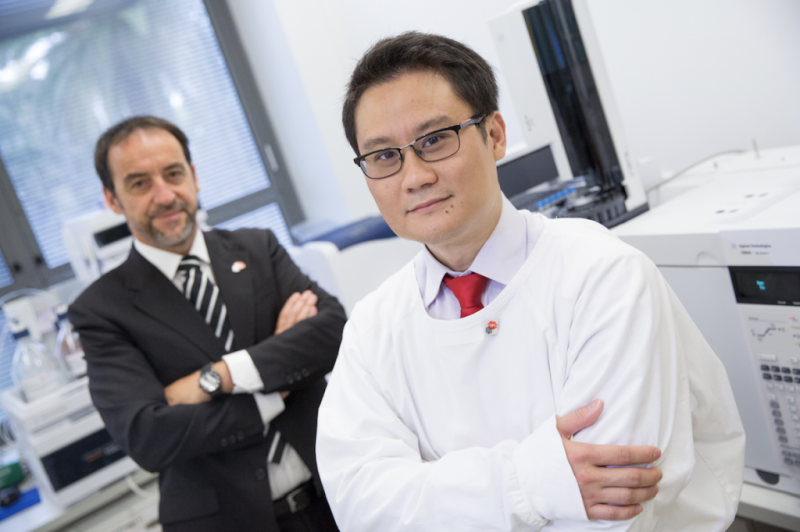First blood biomarker discovered for the prognosis of multiple sclerosis: quick, accurate and soon to be available

An international study, led by Macquarie University researchers Dr Edwin Lim and Professor Gilles Guillemin, has discovered the first blood biomarker – a chemical identifier in the blood – for multiple sclerosis (MS), a debilitating disorder of the central nervous system that affects more than 23,000 Australians and 2.3 million people worldwide.
The findings, which took 12 years to discover, will allow scientists to determine which type of MS a patient has with 85-90 per cent accuracy. While following the course of the disease has traditionally proved problematic and lengthy, requiring patients to undergo an array of expensive tests, the new results show that a blood test could greatly simplify and speed up this process.
"This is a significant discovery because it will facilitate the ability to quickly and simply make a prognosis of the three types of MS and will allow clinicians to adapt their treatment for MS patients more accurately and rapidly," explained Professor Gilles Guillemin, who oversaw the study.
"With the support of Dianti MS Pty. Ltd., an Australian company, we are currently developing a new prognostic kit with Dr Alban Bessede at ImmuSmol, France which will help the medical profession and laboratories around the world quickly and easily identify the type of MS the patients has," he added.
The researchers say that a clinical blood test kit could potentially be available in as little as two years, and the research will also likely provide an entirely new avenue of multiple sclerosis therapeutics with the possibility for the development of a more personalised treatment regime for those affected.
"The unique information that we will receive from the biomarker within an individual, means that it could also be possible develop biomarker guided personalised treatment for each patient," said Dr Lim, the lead researcher of the study, who is currently based at Macquarie University and who was previously an MS Research Australia Postdoctoral Research Fellow at UNSW Sydney, where the research for this study was first initiated.
Dr Matthew Miles CEO of MS Research Australia one of the early and ongoing supporters of this work, commented: "MS Research Australia has been an enthusiastic supporter of this research right from its inception. We have been excited to be part of the translation of this initially fundamental research into a potential clinical test. This has the clear capacity to be the first ever blood biomarker for the prognosis of MS, and in doing so will meet one of the real unmet needs in the clinical management of MS."
The results are also likely to be integral in understanding the progression of other diseases caused by inflammation and neurodegeneration, including Alzheimer's, Parkinson's and Amyotrophic Lateral Sclerosis, also known as Lou Gehrig's or motor neurone disease.
"The test itself relies on detecting compounds within a specific biochemical pathway that uses a chemical called tryptophan. Tryptophan is known to be involved in brain inflammation, and so by increasing our understanding of how our cells process tryptophan, we will be better able to identify its involvement in many types of neurodegenerative diseases," Professor Guillemin concluded.
More information: Chai K. Lim et al. Kynurenine pathway metabolomics predicts and provides mechanistic insight into multiple sclerosis progression, Scientific Reports (2017). DOI: 10.1038/srep41473



















